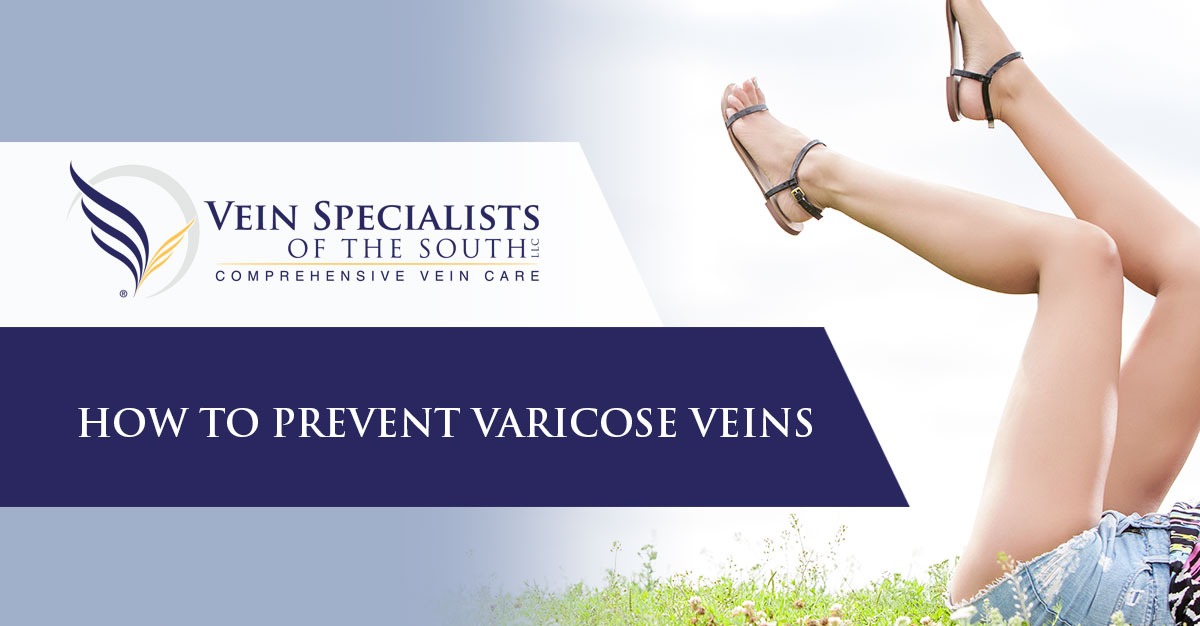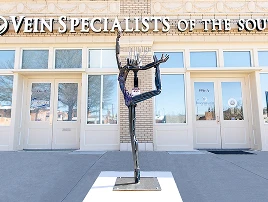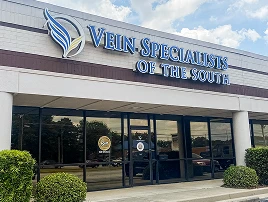Your grandmother, aunt, mother, or even your father have them and now you may be noticing a few popping up. No, we aren’t talking about gray hair; we’re talking about varicose veins; twisted, enlarged, bulging, red, and blue veins found right underneath your skin. If you are worried about having your Mom’s legs, take some time to learn how to prevent varicose veins and the discomfort and unpleasant symptoms associated with them.
What Causes Varicose Veins?
Your heart pumps the blood and the arteries carry it to your body while your veins bring the used blood back to your heart. When your veins aren’t working properly and become weakened or damaged, the venous blood pools in the leg veins. The end result is varicose and spider veins in your legs and ankles.
Family History
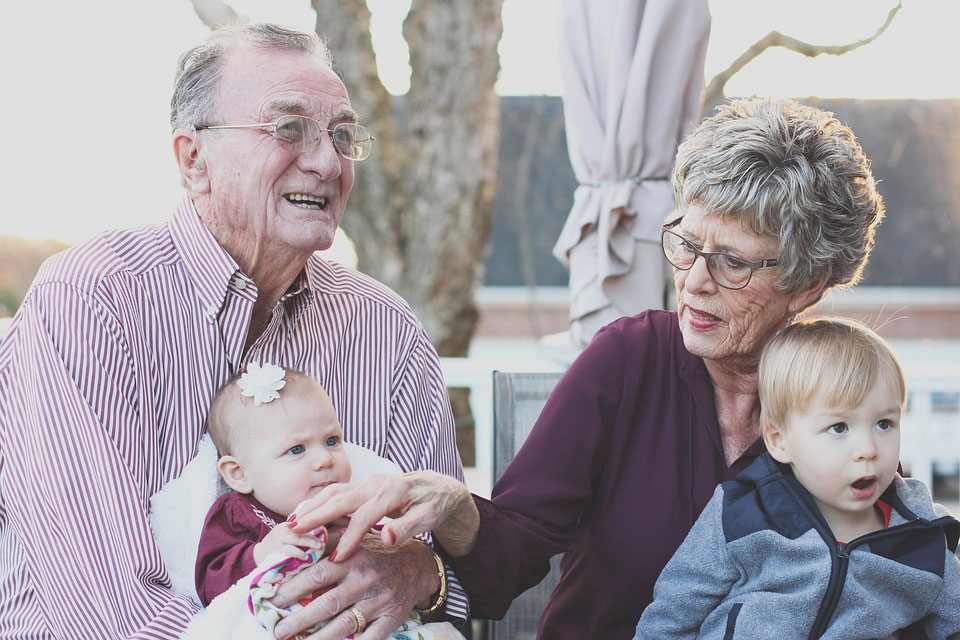
There is a strong genetic basis for varicose veins, so it is no surprise to learn that your family history is the primary factor involved in whether you develop problems with your veins. In fact, it’s been estimated that nearly half of all people with varicose veins have a family history of the condition.
Lifestyle
Your lifestyle is a risk factor for varicose veins. If you are overweight, the added pressure on your veins can cause varicose veins. In addition, a sedentary lifestyle or a job that requires prolonged standing or sitting increases your risk. When you sit or stand for extended periods, your veins have to work extra hard to pump essential blood to your heart.
Other Causes Of Varicose Veins
Other risks factors for varicose veins include your age and gender. As you age, the check valves and vein walls weaken and may not function properly. This can lead to almost half of people over the age of 50 having varicose veins. In addition, if you are born with weak valves your risk of varicose veins is even higher.
Vein trauma or a history of blood clots can damage the veins and check valves. This damage can allow venous blood to pool in your legs, predisposing you to develop varicose veins.
Lastly, the increase in blood volume, the relaxation of the smooth muscles and the pressure of the fetus on the pelvic veins that occurs during pregnancy can cause your veins to enlarge. These effects of pregnancy and a lifetime of hormonal changes results in women being much more likely than men to develop varicose veins.
How To Prevent Varicose Veins
If you want to enjoy “Better Veins for Life” there are a number of things you can do to promote healthy veins. These guiding principles can delay the development of varicose veins and prevent the varicose veins you already have from becoming worse.
Tips Everyone Can Use To Prevent Varicose Veins
Making lifestyle changes is an easy way for you to prevent varicose veins. If you are overweight, losing weight relieves pressure on your veins to improve circulation. Exercising and living an active lifestyle are key to maintaining a healthy weight.
Another measure you can take is avoiding sitting or standing for extended periods of time. When resting, sleeping or relaxing while watching television, elevate your legs. Keeping your legs higher than heart level even if only for a few minutes in the morning, afternoon and evening improves your venous blood flow return improving your circulation.
Although it may come as a surprise, your clothing and shoes are important in preventing varicose veins. Clothing that creates a tourniquet effect can reduce blood flow. High-heeled shoes should also be avoided or worn only on special occasions. Wearing shoes with a low heel, strengthens your calf muscles improving blood flow at the same time. While you may miss wearing skinny jeans or high heels, you are taking an important step towards Better Veins for Life.
A key lifestyle preventive measure to prevent varicose veins or relieving discomfort from the ones you already have is to wear medical grade compression garments. Improving circulation and preventing blood from pooling in your legs, compression hose and socks provide relief from the swelling and aching caused by varicose veins. For mild varicose veins, you can wear support stockings or socks, but if your symptoms are more severe, your doctor may prescribe compression stockings custom fit for your shape.
Understanding your risk factors for varicose veins, such as family history, weight, or age, is important to prevention. If you at risks seeing a vein specialist can help you decide which self-care measures will be most beneficial for you.
How To Prevent Varicose Veins With Exercise
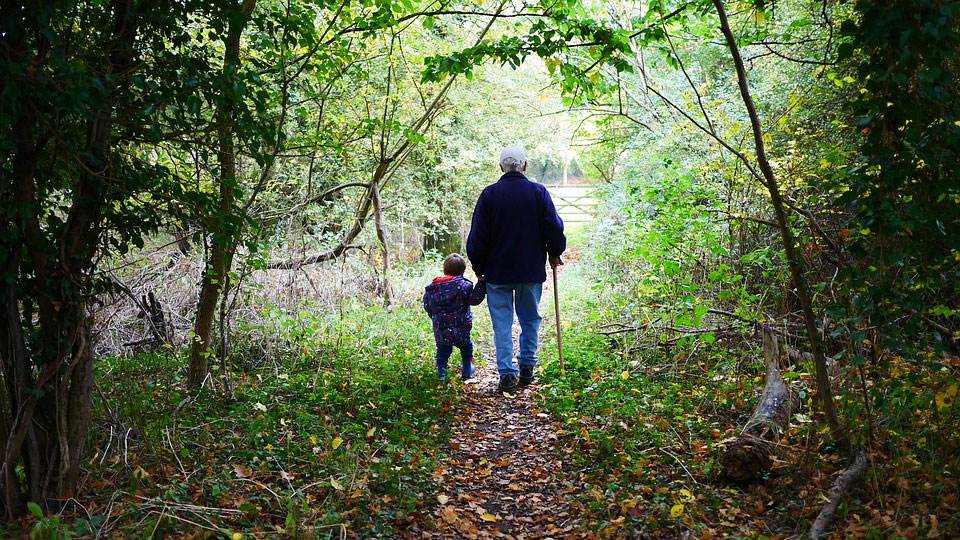
Exercising regularly improves vein health by strengthening the calf muscle pump, the mechanism that returns blood from the lower body to your heart. Having strong calf muscles encourages normal blood circulation minimizing your risk of vein disease.
An effective exercise is walking because it’s a low-impact activity that also stimulates blood circulation and strengthens and stretches your calves. An elliptical machine or stationary bike also improves blood flow without unnecessary stress on your joints. When exercising we encourage at least five 30-minute sessions each week.
Jogging, running and weightlifting are excellent activities but can be hard on your joints. To reduce the impact on your joints, run on grass or a track avoiding hard surfaces like pavement and cement. You should also lift weights with less weight and higher reps since heavy lifting can affect efficient venous blood flow return to your heart. Always follow your weightlifting session with an aerobic activity to encourage normal blood flow. Lunges and crunches should be avoided entirely or combined with aerobic exercise.
How To Prevent Varicose Veins At Work
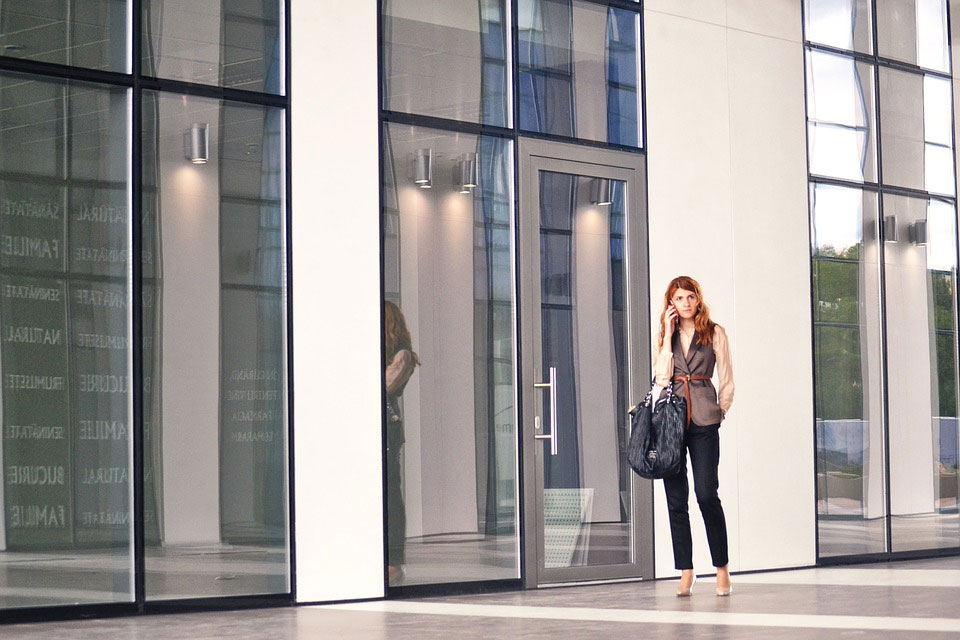
Quick Tip: Take a walk during your business calls to improve circulation.
Whether your job requires you to sit at a desk for most of the day or stand on your feet, it’s possible that your career is affecting your vein health and increasing your risk for varicose veins. Teachers, retail workers, food service workers, doctors, nurses, office workers, and computer programmers are just a few examples of careers that can increase your risk of vein disease. If you work in one of these positions or any job that requires you to stand or sit for long periods of time, there are many things you can do throughout the day to promote vein health.
To encourage proper blood flow, try to change your sitting or standing position frequently and take breaks as needed. If your job requires you to sit at a desk, try to take a short walk about every 30 minutes, even if it’s just to the coffeemaker, and remember to stand up and move around briefly throughout the day. Avoid sitting with your legs crossed as much as possible since this may affect blood circulation. If you spend most of your day standing, we recommend that you alternate shifting your weight from each leg as much as possible. For maximum benefit to your vein health, you can combine these strategies with a few that we have already mentioned, such as striving to maintain a healthy weight, exercising regularly, wearing compression garments, and elevating your legs at home.
How To Prevent Varicose Veins During Pregnancy
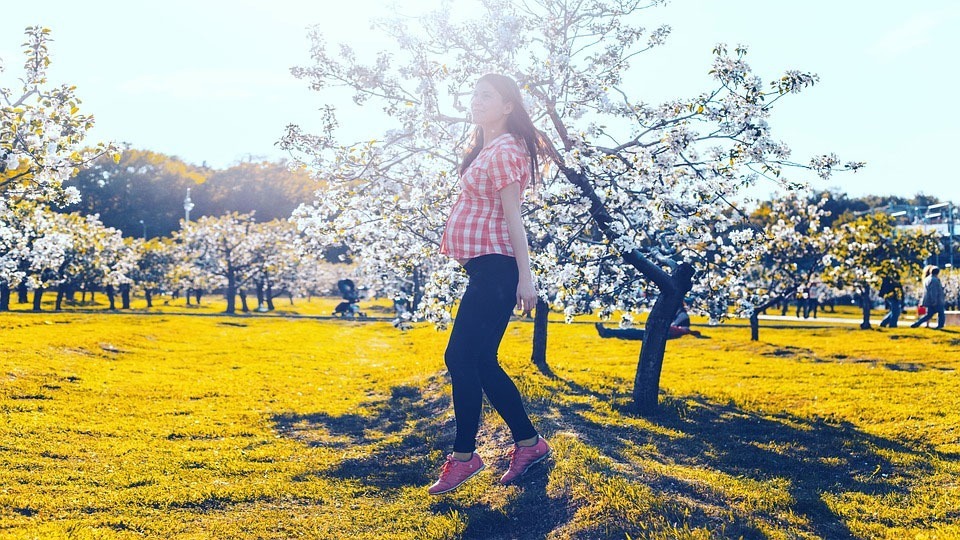
Of the many things you do during pregnancy to keep you and your baby healthy and prepare for the upcoming birth, it’s unlikely that varicose veins are at the top of your list of concerns. You might think there’s nothing you can do during pregnancy to keep venous disease at bay, but there are many things you can do to prevent varicose veins from developing while you are pregnant.
Exercise is important for healthy veins, so you will want to make exercise a priority during your pregnancy. Talk to your doctor about which activities you can perform safely. You can also wear compression hose to promote blood flow and prevent the circulation problems that typically occur during pregnancy. We recommend you begin wearing compression garments very early in your pregnancy to stimulate blood circulation and prevent varicose veins from developing.
The last strategy we’ll discuss is the easiest: Simply put your feet up and elevate your legs. Not only will it help relieve the pressure from your aching feet and legs, but elevating your legs above your heart has the added bonus of improving your vein health and preventing varicose veins.
How To Prevent Varicose Veins And Blood Clots After Surgery
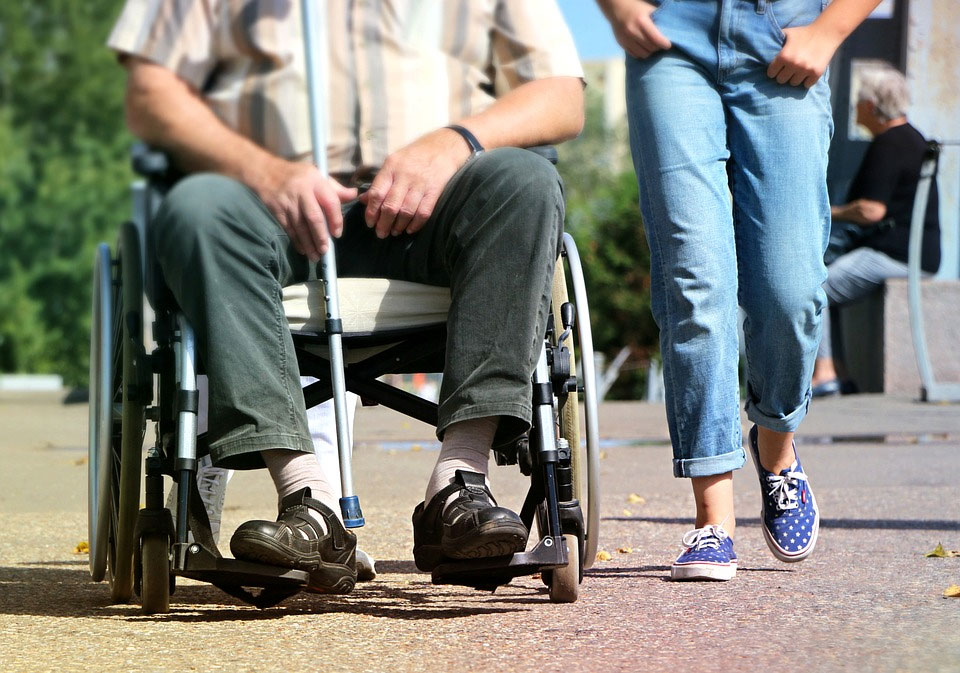
If you’ve recently had surgery, your doctor likely told you to rest and take it easy while you recover. You already know that sitting down for extended periods of time increases your risk of varicose veins, but it can also increase your risks of dangerous blood clots.
What can you do to stay healthy while recovering from surgery? Ask your doctor about your blood clot risks and what can be done to help prevent Deep Vein Thrombosis, Pulmonary Embolus and Venous Thromboembolism (DVT, PE, VTE). The use of anticoagulants, anti-embolism hose, intermittent compression boots and early ambulation are strategies they may recommend.
Other simple strategies include elevating your legs, wearing compression garments, and drinking plenty of water, can be beneficial in supporting your vein health while you are on bed rest. You can also consider performing a few basic exercises like leg lifts, pulling your knees up to your chest, or rotating your ankles to improve circulation. Even something as simple as squeezing a stress ball can help to promote blood flow. Be sure to talk to your doctor about other activities you can perform to prevent blood clots and varicose veins while you are recovering.
How To Prevent Varicose Veins And Treat Venous Disease In Central Georgia
There are many steps you can take to prevent varicose veins from developing, whether you have a family history, work in an occupation that puts you at high risk, are pregnant, or are recovering from a surgical procedure. If you’d like to know more about preventing venous disease, contact us today at Vein Specialists of the South. We are conveniently located in downtown Macon and Warner Robins, GA, to proudly serve residents of Central Georgia. Board-certified by the American Board of Surgery and a diplomat of the American Board of Venous and Lymphatic Medicine, Dr. Harper is an experienced vein specialist who has helped thousands of people improve their quality of life without the pain and discomfort caused by varicose veins. Schedule a consultation today and learn how to prevent varicose veins so that you can enjoy Better Veins for Life.
